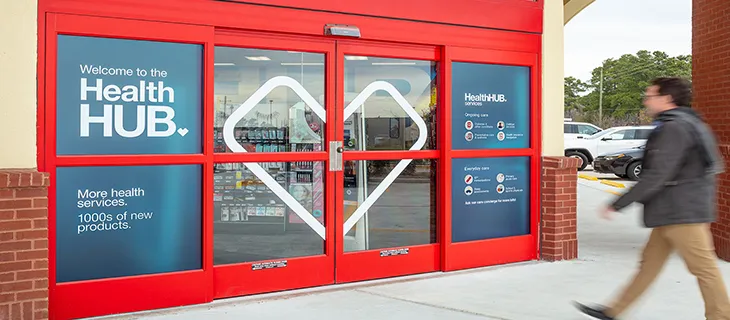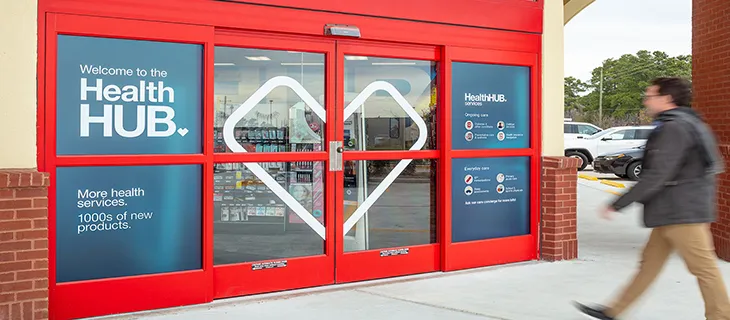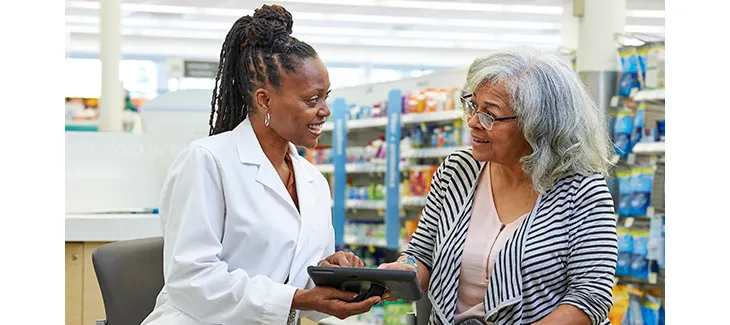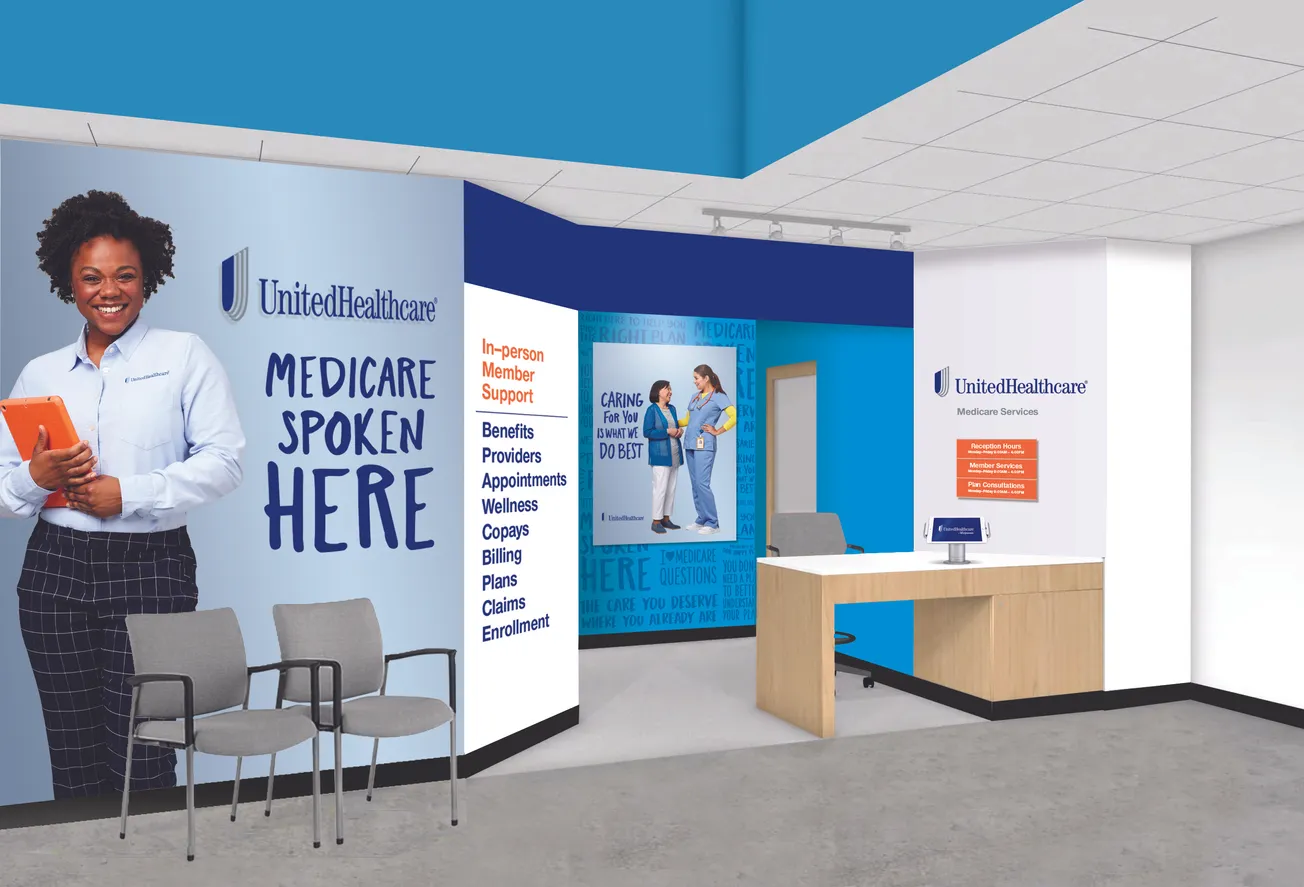
Mark Mechelse
The retail industry has experienced extraordinary disruption over the past decade, and it continues to shift today. But retail itself has also begun to disrupt a behemoth of an industry: health care. The quickly growing self-care movement — which inspires consumers to embrace proactive life choices through investment in accessible wellness and better-for-you methods — is playing a major role in the future of retail.
The consumerization of health care, combined with rising health care costs and a growing distrust of the U.S. health care system, is driving new consumer habits, buying patterns and store traffic. The line between health care and retail is blurring as the cost of health care is leading consumers to look to retail for solutions.
GMDC|Retail Tomorrow research finds that only 53% of U.S. citizens trust the health care system and, as a result, consumers are seeking a broader selection of self-care services and solutions within retail as they take active roles in controlling their personal health outcomes. Nine in 10 consumers report a desire for retailers to be more involved in their personal wellness.
In its 2018 Health and Wellness Retail Drivers Research Report, GMDC|Retail Tomorrow identified health, beauty and wellness as categories in which consumers are rejecting the convenience of online shopping in favor of traditional brick-and-mortar visits. More than ever before, consumers want personalized health, beauty and wellness products and solutions that help them to look good and feel better; prevent disease; treat chronic conditions such as obesity and diabetes; and improve their quality of life.
Self-care is a $4 trillion marketplace. By 2021, Americans are expected to devote 24% of all household spending on goods and services focused on wellness, up from 12% in 1980.
GMDC|Retail Tomorrow — which in October held its inaugural Selfcare Summit, the only industry gathering focused exclusively on how the self-care movement is reshaping retail — recommends brick-and-mortar retailers align their health, beauty, wellness and personal care services with this opportunity to play a key role as healthy living experts. In an effort to enhance the shopping experience, retailers can transform their physical locations into health-and-wellness-focused destinations that inspire and complement healthy lifestyles.
“Health systems and drug and grocery stores should be working together to manage the gap between treatment and care,” says Marcus Whitney, GMDC member and advisor and founder and chief executive officer of Health:Further, a strategic advisory firm serving health care providers, payers and large retailers, among others, with innovation in health care business models and care delivery.
The two industries are beginning to see a response to this shift, and new GMDC|Retail Tomorrow member CVS Health is at the forefront of the effort.
In September 2014, in a bold demonstration of its commitment to helping people on their paths to better health, CVS Health became the first national retail pharmacy chain to stop selling tobacco products in all of its stores. Results showed a measurable, positive effect on public health.
And in November 2018, CVS Health completed its acquisition of Aetna in an effort to transform the consumer health care experience, establishing an innovative health care model that will be simpler and help consumers achieve better health at a lower cost.
“Transforming the consumer health experience and improving health outcomes go hand in hand,” said Jackson Collins, senior director of enterprise insights at CVS Health and member of GMDC|Retail Tomorrow’s Education Leadership Council. “We’re working to deliver a differentiated, innovative health care model that is convenient, personalized, more affordable and focused on the consumer’s health and wellness journey.”
CVS Health is currently implementing a retail concept called HealthHUB, in which the company will incorporate a range of health care services and products — including nutrition counseling, health and wellness classes, and medical equipment — at CVS Pharmacy stores across the country. Building on the success and customer response to its HealthHUB pilot in Houston, the company will open additional locations in Texas, Georgia, Pennsylvania, New Jersey and Florida this year, and it plans to have 1,500 HealthHUB locations operating by the end of 2021.
Further proof of this trend, the number of in-store clinics in grocery stores has increased from 300 to 3,100 over the past decade as consumers continue to move away from the legacy health care model and become more proactive in their personal health outcomes.
The intersection of health care and self-care within retail is providing consumers with the personalized health and wellness care they need when and where they need it, at a more affordable cost. With projections predicting a shortfall of more than 90,000 physicians by 2025, consumers will only continue to look more to retail and less to the legacy health care model to fulfill their health and wellness needs. Like CVS Health and Aetna, providers and payers need to continue identifying strategic alliances and partnerships to address and respond to this transformation.
Mark Mechelse is vice president of insights and communications at GMDC|Retail Tomorrow. He can be reached at mmechelse@gmdc.org.









